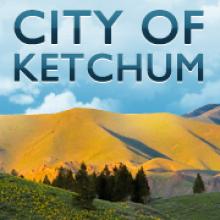Ketchum, Idaho: No Tolerance for Cox Push Polls
Cox pushed Ketchum one step too far. The community of 2,700 formed a broadband advisory committee in November, 2012, and included a representative from Cox on the committee. Brennan Rego of the Idaho Mountain Express recently reported on happenings in Ketchum.
When residents in Wood River Valley started receiving push poll telephone calls from Cox to poison any possibility of a community owned network, Mayor Randy Hall and city leaders reacted promptly. They booted Cox off the broadband advisory committee.
Consistent with Cox push polls in other places, questions were leading:
“The questions were so outrageous, I didn’t want to continue with the survey,” [Valley resident Sarah Michael] said. “I got offended. They were inappropriate and misleading.”
Michael said that, in essence, one question asked: Would you support Ketchum’s broadband initiative if you knew the city would cut police, fire and other essential services to pay for it?
“Who’s going to answer yes to that?” she said.
Michael and other residents who received the calls contacted surprised city staff and Mayor Hall.
“As the mayor, I can’t stand by and let somebody imply that I’m going to compromise the Police Department and the Fire Department by taking money away from them and putting it toward a broadband initiative,” Hall said. “That’s insane. I would never do that. I think the survey was trying to create fear.”
Cox claimed the questions were designed to "learn more about the public's opinion" but would not divulge the wording of the survey questions.
The city posted a disclaimer on its website to ensure residents knew the survey was not associated with the committee.
“Cox is a very valuable member of our community,” Hall said. “But to imply that the city is willing to compromise the health and safety of its citizens by funding a broadband initiative is false and irresponsible.”
Hall said he considers Cox’s “unilateral action” in deciding to conduct the survey a “breach of trust,” but that the city would welcome a new representative of the company to the committee.



